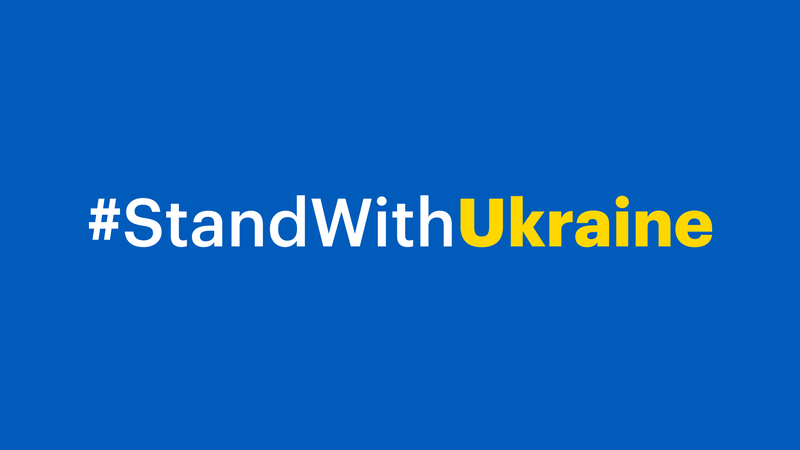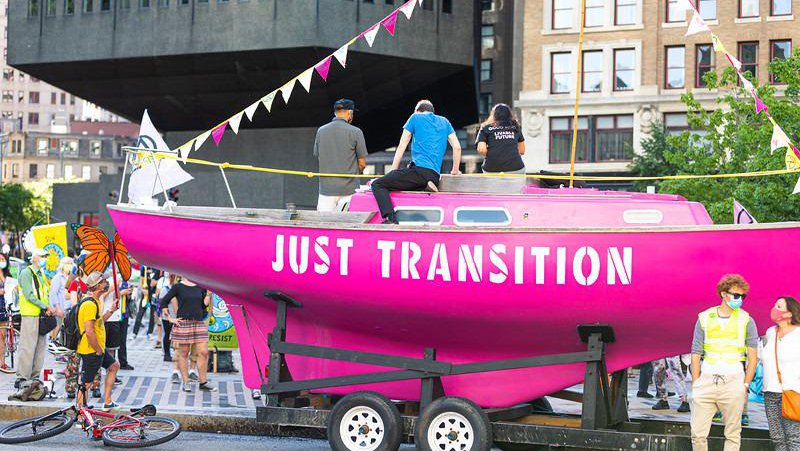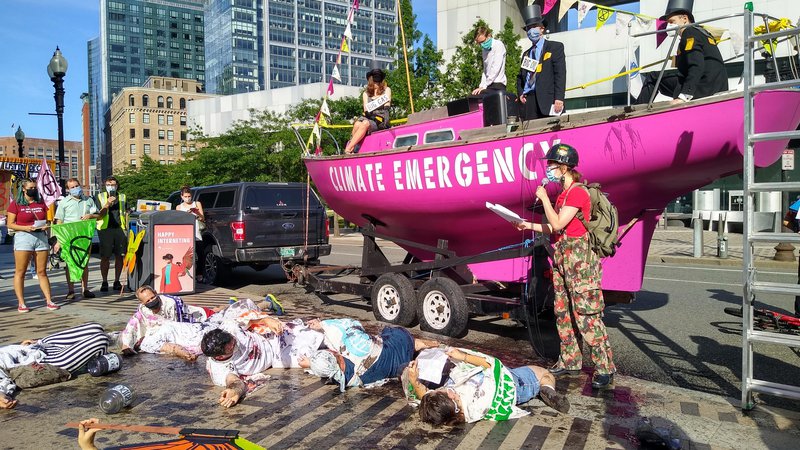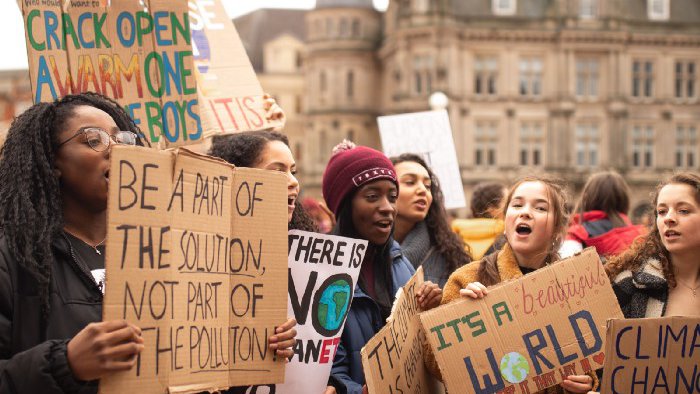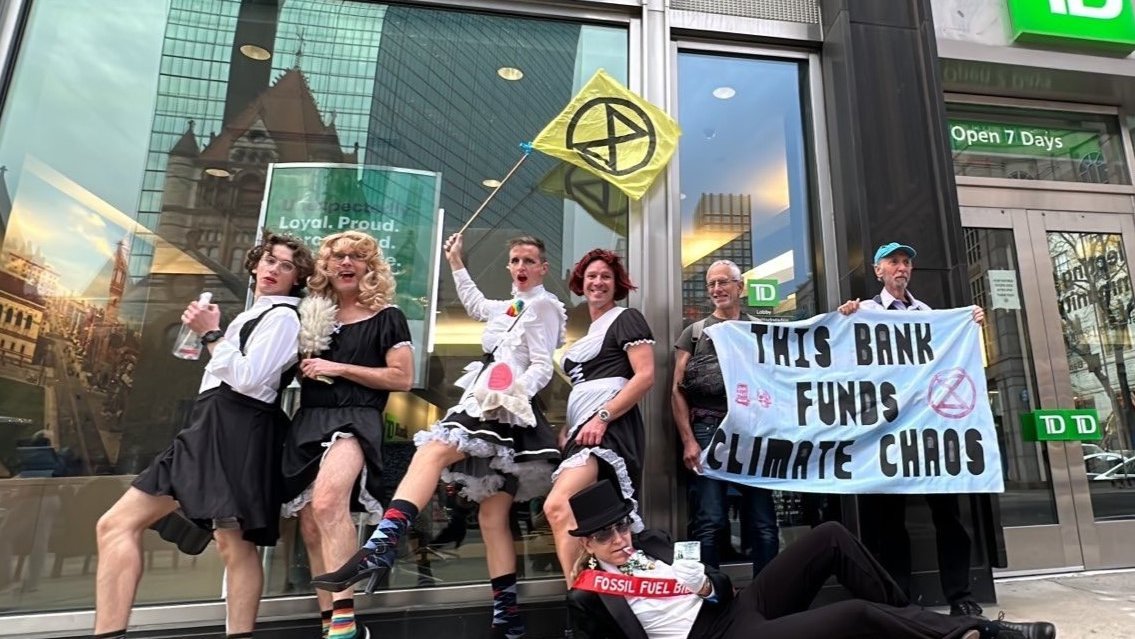
Where Should Climate-Conscious Folks Bank?
One of the most effective ways we can live in integrity with climate consciousness is to limit the amount of financial support we give the fossil fuel industry. While Extinction Rebellion acknowledges that personal choices are a small percentage of the change that needs to be made in our world, and that governments and corporations need to be held accountable, it can ease climate anxiety to know we're doing something to support a better future!
Some ways to avoid pouring finances into the fossil fuel industry are direct, like limiting air travel and driving vehicles less (these also cut down on burning carbon). Other ways are less obvious, including where we keep our money and where we invest it. When we keep money in banks that support the fossil fuel industry, we are handing them resources to use in fueling climate change. The best thing to do is transfer our finances to a bank or credit union that invests in less destructive ways! Even if we aren't withdrawing a vast amount, one fewer customer makes a difference.
Much of the following information is borrowed gratefully from the 350 Mass Stop and Steer the Money Working Group.
The Problem - Where Not to Bank
The biggest lenders to the fossil fuel industry who have a banking presence in Massachusetts are: Chase, Citi, Wells Fargo, Bank of America, TD, and Santander. Chase Bank is the world's worst contributor to fossil fuel investment, funneling over $51.3 billion into the fossil fuel industry in 2021 alone. If you need a frame of reference for that number, in 2023 President Biden invested a total of $44.9 billion in discretionary budget authority to tackle the climate crisis. Spanish bank Santander leads financing for companies extracting in the Amazon biome, followed closely by U.S. Citi bank. Bank financing for Amazon oil and gas totaled $769 million in 2022.
If you aren't banking at those six banks, you're still not necessarily safe from funding climate destruction. The 60 banks that lend the most to the fossil fuel industry can be found atbankingonclimatechaos.org. If you use one of these banks, it's time to consider switching to a less problematic financial institution.
The Solution - Where to Bank
Local makes the biggest difference! To find banks or credit unions that lend nothing or little to the fossil fuel industry, we recommend focusing on institutions that are headquartered in Massachusetts, and are relatively small and local. These banks or credit unions do not have the loan capacity required by the fossil fuel production industry.
If local institutions don't work for your lifestyle, Aspiration Bank is also an option. Touted as "an eco-friendly bank," Aspiration has a two-fold system for its environmental impact: The company helps customers move their money away from oil and coal investments and pays to plant trees on behalf of its customers. It's not without controversy. According to ProPublica, the 2021 shareholder report for Aspiration's "Redwood" mutual fund filed with the SEC, reveals that it owns shares in multiple companies that are either big users of fossil fuels or are in the industry itself. Shares of Southwest Airlines, whose airplanes and operations emitted 12.6 tons of greenhouse gases in 2020, make up almost 3% of the fund. That’s more than the fund’s holdings in sustainable energy stocks, which combine to make up 2.3% of the portfolio. Still, Aspiration is likely your best non-local option.
Community Reinvestment Act
The CRA is a useful tool for determining how local a "local" bank or credit unions is. First, we recommend specifically researching institutions headquartered in Massachusetts. After that, the CRA ratings indicate how well banks support local and low to moderate income communities. The more an institution dedicates to its own community, the less it can give to environmental and climate destruction. This can be one way to determine if an institution is actually locally-focused! You can scanall MA banks' CRA ratings here. If you're living outside of Massachusetts, you can search the national CRA database here.
How should I communicate with a prospective financial institution?
Before joining a new bank or credit union, we recommend having a friendly discussion with a branch manager or agent of an institution you are considering, to explicitly ask about their investments and climate commitments. 350 Mass has provided a Bank Interview and Questionnaire guide that we find especially helpful!
350 Mass has provided a full climate-friendly banking guide!
This comprehensive series of documents from the 350 Mass Stop and Steer the Money Working Group walks you through the process of choosing a climate-friendly bank or credit union, selecting a credit card, and the process of transferring from one institution to the next. Here's to climate conscious investments and banking in 2024!
Related Stories:
Featured:
-
The third annual Week of Rebellion is full of opportunities for celebration and action!
-
Our government had the opportunity to finally turn our state into a "climate leader," and they decided yet again to prioritize profits and political posturing over the well-being of residents.
-
Prominent climate scientists and activists demand immediate climate action in the United States.
-
Stop the Fossil Fuel Industry, Now: List of events for Extinction Rebellion Boston's September week of rebellion
-
A compilation of books, movies, articles, and ways to take action to protect Black lives
-
Nadia Colburn, PhD and member of Extinction Rebellion Media team, discusses how to talk about the climate and ecological crisis with family and friends.
Upcoming Events:
-
Sun Jul 20th @ 4 p.m.
-
Fri Jul 25th @ 6 p.m.
-
Sun Jul 27th @ 1 p.m.

